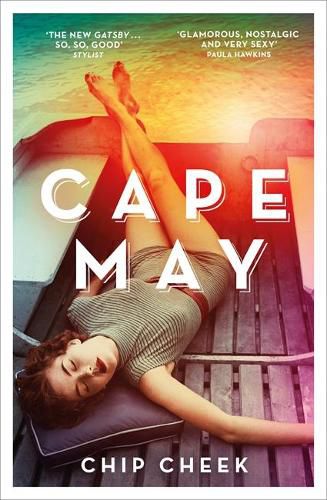Readings Newsletter
Become a Readings Member to make your shopping experience even easier.
Sign in or sign up for free!
You’re not far away from qualifying for FREE standard shipping within Australia
You’ve qualified for FREE standard shipping within Australia
The cart is loading…






‘Glamorous, nostalgic and brilliantly unsettling’ Paula Hawkins
‘The new gatsby… So, so good’ Stylist (The Top 10 Books of 2019)
‘An atmospheric tale of sexual longing… Nods to classics like The Great Gatsby and Revolutionary Road’ Independent (30 Best New Books for 2019)
SEPTEMBER 1957.
Henry and Effie, young newlyweds from Georgia, arrive in Cape May, New Jersey, for their honeymoon. It’s the end of the season and the town is deserted. As they tentatively discover each other they begin to realise that everyday married life might be disappointingly different from their happy-ever-after fantasy.
Just as they get ready to cut the trip short, a light goes on in one of the houses on their street and a decadent and glamorous set suddenly sweep them up into their drama - Clara, a beautiful socialite who feels her youth slipping away; Max, a wealthy playboy and Clara’s lover; and Alma, Max’s aloof and mysterious half-sister, to whom Henry is irresistibly drawn.
The empty beach town becomes their playground as Henry and Effie slip from innocence into betrayal, with irrevocable consequences that reverberate through the rest of their lives…
$9.00 standard shipping within Australia
FREE standard shipping within Australia for orders over $100.00
Express & International shipping calculated at checkout
‘Glamorous, nostalgic and brilliantly unsettling’ Paula Hawkins
‘The new gatsby… So, so good’ Stylist (The Top 10 Books of 2019)
‘An atmospheric tale of sexual longing… Nods to classics like The Great Gatsby and Revolutionary Road’ Independent (30 Best New Books for 2019)
SEPTEMBER 1957.
Henry and Effie, young newlyweds from Georgia, arrive in Cape May, New Jersey, for their honeymoon. It’s the end of the season and the town is deserted. As they tentatively discover each other they begin to realise that everyday married life might be disappointingly different from their happy-ever-after fantasy.
Just as they get ready to cut the trip short, a light goes on in one of the houses on their street and a decadent and glamorous set suddenly sweep them up into their drama - Clara, a beautiful socialite who feels her youth slipping away; Max, a wealthy playboy and Clara’s lover; and Alma, Max’s aloof and mysterious half-sister, to whom Henry is irresistibly drawn.
The empty beach town becomes their playground as Henry and Effie slip from innocence into betrayal, with irrevocable consequences that reverberate through the rest of their lives…
There’s an old-fashioned glamour to Chip Cheek’s impressive debut novel, Cape May, which I found very alluring. Set in 1957, in the seaside New Jersey town that gives the book its title, Cheek introduces Henry and Effie: young, Southern, unsophisticated and on their honeymoon. It’s September, the off-season, and the town is nearly deserted – the beach is empty; the houses are dark. With little to amuse them, Henry and Effie spend their days exploring the town’s quiet streets, and the long nights exploring each other.
When the lights come on at the house across the street, Effie is reintroduced to Clara, an acquaintance from her days holidaying in Cape May as a girl. Clara is older and worldlier than Effie in every way. Staying with her is her lover, the insouciant writer Max, and his enigmatic half-sister Alma. Now raucous parties, boat trips, and endless glasses of gin consume Henry and Effie’s days and nights. The group play games – at first innocent and then increasingly provocative, they make a messy tangle of relationships that test Henry and Effie’s understanding of happy ever after.
Cape May offers many sensual pleasures. Cheek has crafted a novel of lush period detail and vividly contoured characters. A story of sexual awakening, it’s frank and observant about the urgencies of desire, reminding me of work by many of the greatest American male novelists – John Updike, Philip Roth, and especially James Salter. Cheek’s skill at tapping into the hollowness of hedonism and the careless damage caused by the wealthy and bored won’t avoid comparisons to F. Scott Fitzgerald, but Cape May wears these influences lightly. Despite looking back to the 1950s, it is a thoroughly modern book – seductive and evocative but never naïve or frivolous. Cheek’s finest moments are definitely the dark ones, when the glamour turns grimy.